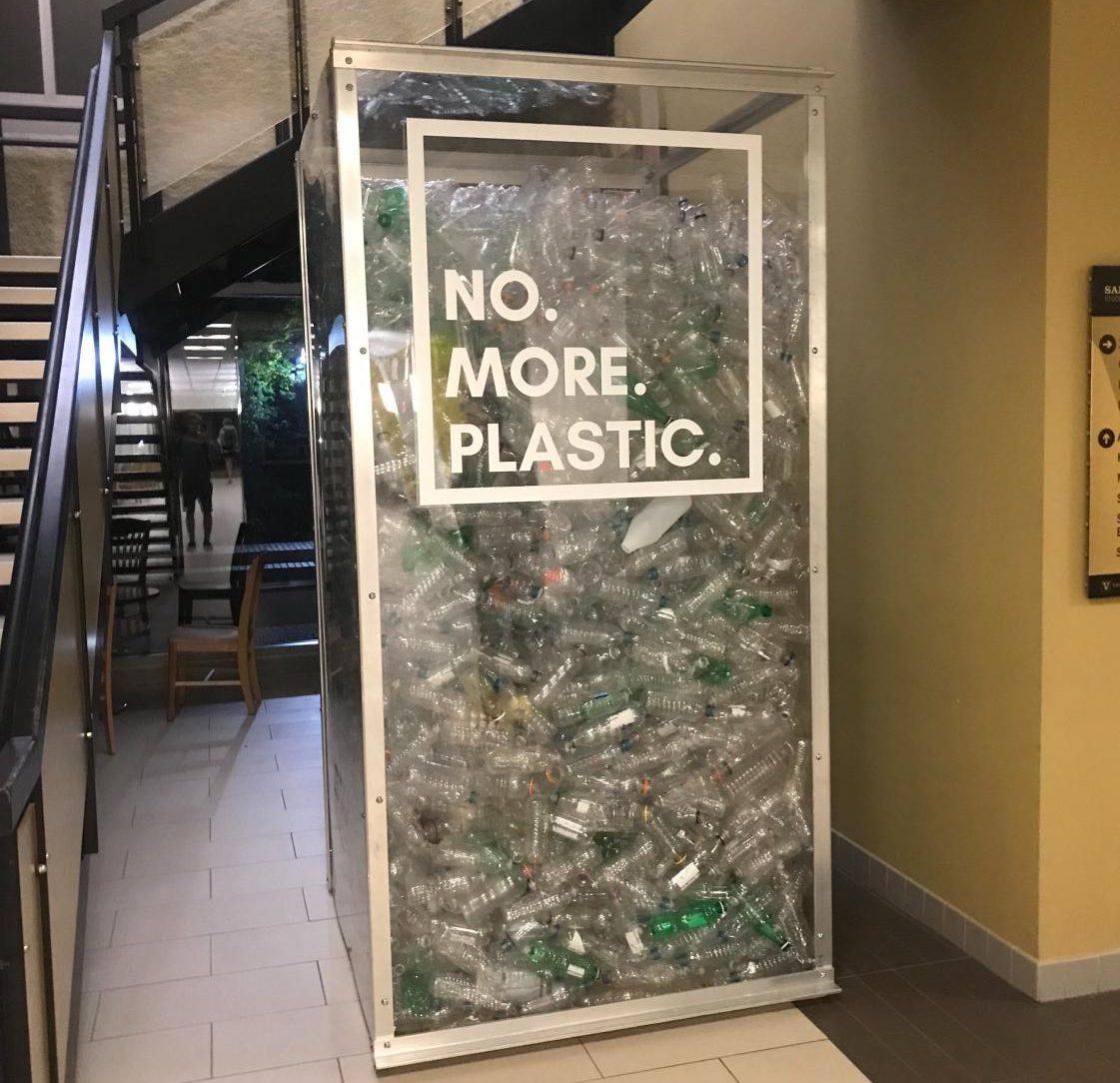
Yes, Vanderbilt recycles. I’ve heard a lot of students choose not to recycle because they are under the impression that the materials we put into recycling bins end up in the trash anyway. This is an incorrect assumption. The real problem is whether or not we, the students, choose to actually recycle properly.
The proof that Vanderbilt recycles is that they actually get paid for, or at least break even on, the materials that we recycle, according to Matthew Buckley, Vanderbilt University’s Campus Waste and Recycling Manager. This includes cardboard, paper and aluminum, as well as smaller streams like batteries, tin and used electronics. The only reason we would get paid for these materials is if they were being recycled.
Plastic is the exception; instead of getting paid to recycle plastic Vanderbilt has to pay for it to be recycled. Plastic recycling is costly and inefficient, as NPR, the Economist and my co-columnist Kailey has just written about. A lot of the challenges of recycling plastic stem from contamination from consumers in the form of food residue and non-recyclables ending up in the stream.
These challenges arise because many students are unaware of how to properly recycle plastics. For example, did you know that you have to rinse out your food and drink containers before recycling them? Otherwise, they often have to be thrown away even if you put them in the right recycling bin. The plastic bag you put in the bin does not belong there either, though it could be properly recycled if you take it back to the grocery store.
This is why Vanderbilt’s No More Plastic is nothing to scoff at; we have to acknowledge and take responsibility for what we throw away. When there is plastic pollution so ubiquitous around the world and its oceans that it ends up in our backyards and in our food, perhaps we should all really start to care.
Here are a few ways Vanderbilt students can recycle smarter:
Reduce, Reuse and then Recycle: Reducing and reusing are incredibly more efficient and sustainable than recycling ever can be, and that should be your primary concern in day to day activities.
Recycle your mixed paper: This means any paper you would write on, including cereal and tissue boxes. Do not recycle anything that has food or wax on it, and do not recycle anything you would use to clean, or absorb, a mess.
Recycle clean and empty aluminum cans and glass jars and bottles. Recycling for glass can be found at Commons, Warren, McTyeire, Morgan, with more locations here. Empty out and then rinse those aluminum cans before putting them in the bin, use the water fountains if need be.
Be careful about plastic: Recycle only clean and empty plastic containers. Don’t recycle plastic bags, plastic film, wrappers, packing materials, styrofoam, plastic straws, plastic utensils or plastic pouches like Capri Sun or the ones that have applesauce. In addition, the plastic cups in Rand that say compostable on them should not be recycled, but instead placed on the conveyor belt.
For more information, FutureVU also has a page dedicated to the streams mentioned above, as well as for non-traditional recycling.
Vanderbilt’s No More Plastic initiative is a great start to reducing the amount of plastic we use on a daily basis. By replacing plastic bottles with much more recyclable aluminum cans in our munchie marts, the university is taking a giant step towards their Zero Waste goals.
We cannot keep ignoring the consequences of our consumption, it is time we start taking responsibility for our actions. Reduce, reuse then recycle. Recycle the right way and encourage your friends to do so as well.



